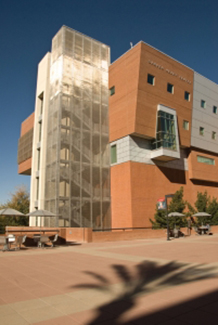 Research is an integral component to advancing patient care within the University of Arizona Division of Cardiology and the UA Sarver Heart Center.
Research is an integral component to advancing patient care within the University of Arizona Division of Cardiology and the UA Sarver Heart Center.
Clinical Research
The Center has a busy, professional clinical research office which is actively enrolling patients in research trials in many cardiovascular diseases. We are testing the newest medications, devices and technologies designed to improve outcomes in people with cardiovascular diseases. In addition, we are testing methods to better care for patients with heart disease, working to ensure that outcomes are optimized in everyone suffering heart disease.
Resuscitation Science
The UA Sarver Heart Center Resuscitation Research Group is world-renowned for decades of research that have transformed how CPR is performed, leading to new guidelines that advocate chest-compression-only CPR. Chest-compression-only CPR doubles a person’s chance of survival from sudden cardiac arrest. Ongoing work is focused on better understanding the causes behind cardiac arrest and development of new treatments that maximize the chance of survival after cardiac arrest.
Heart Failure Research
Heart failure is an area of specific research focus at the Center, spanning the entire spectrum from basic science to clinical and population science. Many of our scientists study the molecular mechanisms of heart failure, inherited and other heart muscle diseases. Clinical research projects focus on new drug and device treatments for heart failure and pulmonary hypertension, as well as projects aimed at better understanding how to personalize heart failure therapy and more effectively individualize treatments using genomic, proteomic and metabolomics approaches. Population health projects are focused on better understanding disparities in heart failure, including how the disease differs in women and men, the young, old and very old, and racial and ethnic minority populations.
Molecular Cardiovascular Research Program
Established in 2006, this large, internationally recognized group of scientists from diverse disciplines works together in an "open-lab" atmosphere to better promote exchange of ideas, collaboration and translation. The focus is on interdisciplinary approaches to cardiovascular diseases, including developmental, physiological and cellular—applying advances in molecular biology, genetics, bioengineering and biochemistry to treatments for clinical diseases of the heart.
Training in Cardiovascular Research
The Division of Cardiology and the UA Sarver Heart Center have a long tradition of encouraging young researchers, as evidenced by the number of Investigator Award recipients who have gone on to productive and well-funded research careers. The wide variety of scientific opportunity available makes for a rich and individually tailored research experience for our trainees. Undergraduate students, graduate students, medical students, residents, clinical and post-doctoral fellows all find rich learning experiences.
We focus not only on teaching our trainees in research methods, but in providing them all of the skills necessary to compete in today’s scientific climate—training in writing grant proposals, collaborating with other investigators, understanding regulatory issues, working across disciplines, and managing a laboratory or research program. Through an alliance with the Eureka Institute in Translational Medicine, select trainees have the opportunity to participate in focused training on the practical aspects of translating basic findings to clinical treatments. In addition, several training grants allow learners to fund dedicated research time, gaining the skills necessary to compete in a rigorous scientific climate. Finally, research focused on collaboration across disciplines provides the opportunity to explore many different areas of cardiovascular research, and develop an individualized training plan for each learner.
Cardiovascular Science Fair
In 2015, a new tradition was launched with the UA Sarver Heart Center’s first Cardiovascular Research Fair. Cardiology fellows, residents and medical students were invited to meet established heart-disease researchers to learn about potential projects they could be involved in and find research mentors. The format led to an increase in research engagement among our trainees.
Investigator Awards
Medical researchers often have an abundance of questions. The difficulty, however, comes in finding funding to search for answers. Thanks to the generosity of donors, the UA Sarver Heart Center Investigator Awards Program provides more than $100,000 in funding annually to students, trainees and faculty for early-stage, pilot and bridge funding. This program has—for a decade now—provided a gateway between new ideas and the early data required for researchers to successfully compete for national grants.
Current Clinical Trials
In the Division of Cardiology, we are exploring not only the newest potential treatments for heart disease, both with drugs and devices, but also are looking at better ways to identify or prevent heart disease. While some clinical research trials involve randomization to a study group, others use surveys or evaluate medical records to find new and better ways to help people. We often recruit healthy subjects, or controls, to better evaluate and compare results with those of non-healthy subjects.
See current clinical trials about heart/cardiovascular disease
How to Participate
Whether you are a person with heart disease interested in a study, or you would like to participate as a “healthy volunteer” for a control group, or you’re a research or clinical professional interested in collaborating with the research team—simply contact the study coordinator listed for each individual clinical research study above.


